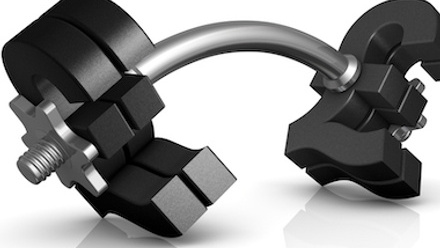Michelle Sutton of SUEZ on introducing a credit union as a financial employee benefit

Michelle Sutton, head of reward and pensions at waste management company SUEZ, is one such employer who has decided to put credit unions at the heart of financial wellbeing.
Why a credit union?
SUEZ has more than 300 UK sites and many of its staff are low-paid. Sutton explains that one of the main reasons for choosing to introduce a credit union over a financial employee benefit provider was because of the emphasis on building financial resilience through savings. And only through saving can employees access low interest rate loans, which most of the workforce will qualify for.
“If employees save a minimum of £5 a month they can take out a loan – 96% of applicants qualify for the loan but they also have to be saving,” she says.
It is the link between saving and borrowing that was particularly important. “We want to change behaviours,” says Sutton. “It is quite an ethical business [the credit union], it is there to help people and the focus is on saving.”
Although their credit union offers access to emergency loans for employees – the emphasis is on providing financial help that is sustainable for the employee, rather than getting them into a cycle of borrowing.
“Credit unions offer access to higher interest savings rates than you can find on the high street,” says Sutton. “This suits not just those struggling to save anything, but also higher earners who want a better savings rate. Savings are protected up to £85,000 like a normal bank.”
Launching the scheme
The scheme was launched at the beginning of October and has already had excellent take-up, with 47 employees signing up in the first eight days.
Offering access to the credit union as an employee benefit is free and there are no joining fees for individual employees. SUEZ simply administers deductions from employees’ NET pay, which then goes to the credit union and into the employee’s savings account.
As Sutton explains: “[Our credit union] TransaveUK is an employer-run credit union where employees agree to have money deducted from their NET salary each month. The scheme also offers other benefits when employees join (and save):
- £1,250 death benefit to help with funeral costs
- any outstanding loans paid off (when the employee dies)
- competitive interest rates
- affordable loans.”
They’ve promoted the scheme across the business in several ways including: presenting the scheme to the SUEZ Works Council, messages on payslips, in the ‘SUEZ Life’ magazine, posters, in leaflet dispensers at depots with the highest headcount (containing application leaflets and reply paid envelopes), and site visits – with potential to roll these out to other depots.
What are credit unions?
Credit unions are non-profit financial organisations that offer an alternative to traditional banks and building societies for saving and borrowing. They can sometimes beat savings rates of high street institutions – as any profit made by the union is paid back to savers in the form of dividends – and can often lend to those who cannot access bank loans.
To join a credit union members usually have to have something in common to benefit their community. This can be living in the same town, working in the same industry or belonging to a certain trade union.
Credit unions are seen as mutually beneficial as there are no third-party shareholders. They also offer the opportunity to help others in the community, which is a big selling point in a world where employees are increasingly becoming more socially aware.
Credit unions are often willing to provide small loans and are a much cheaper alternative to payday loans. Many will also insist that borrowers have savings with them. Overall they encourage people to take control of their finances and develop good financial habits by supporting them to save what they can and borrow only what they can afford.
The author is Dawn Lewis, content editor at REBA.






